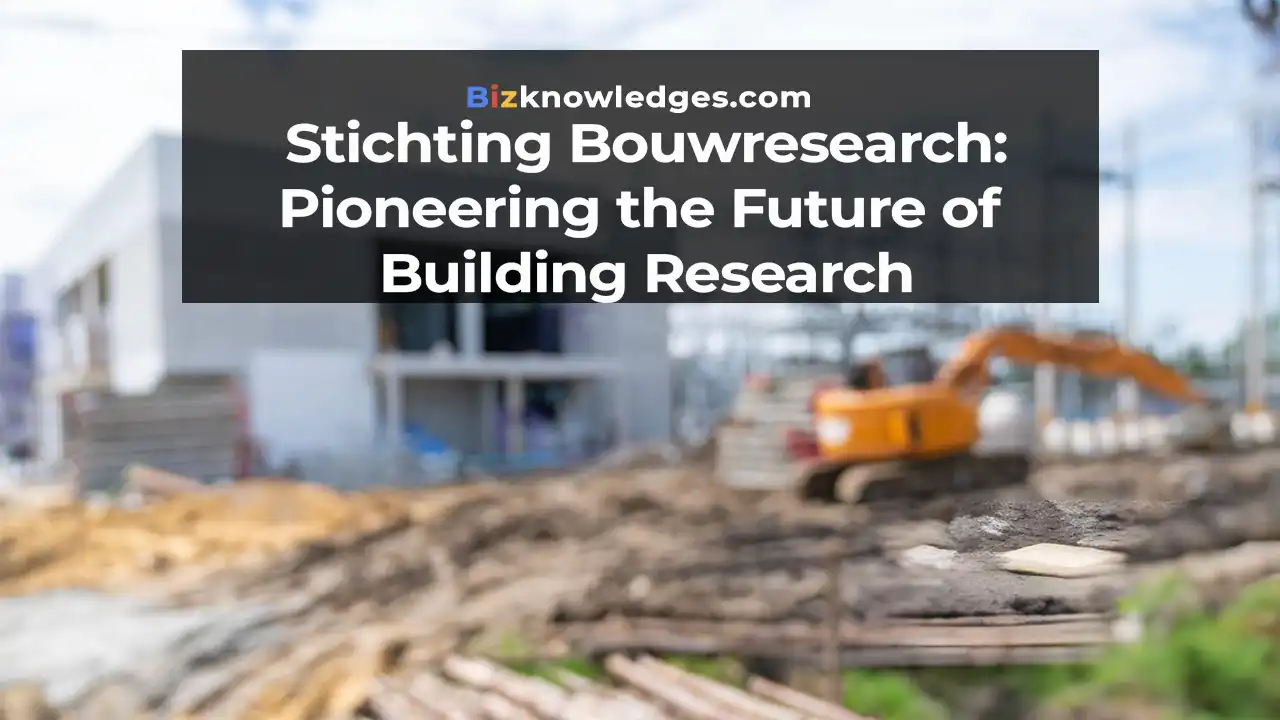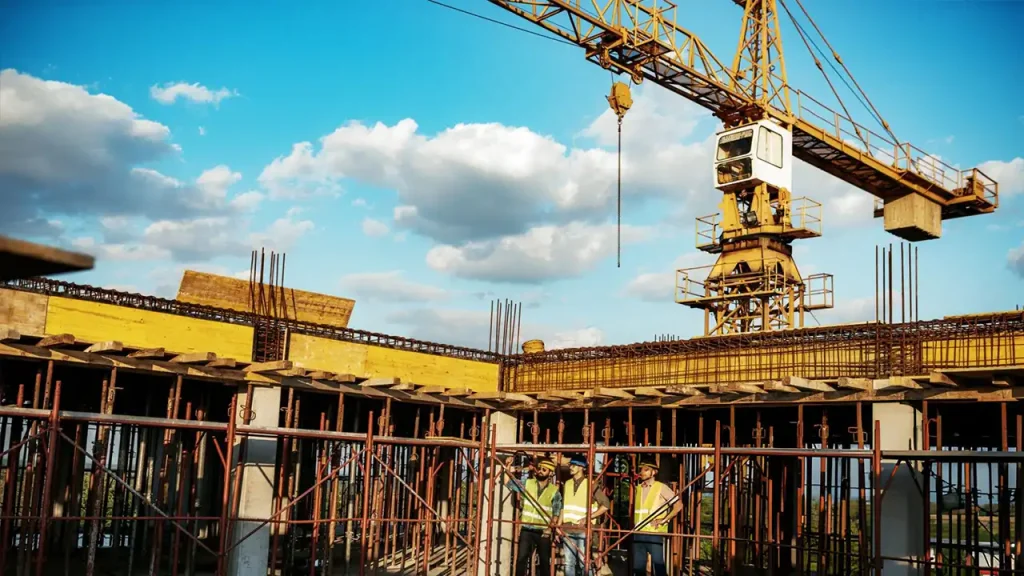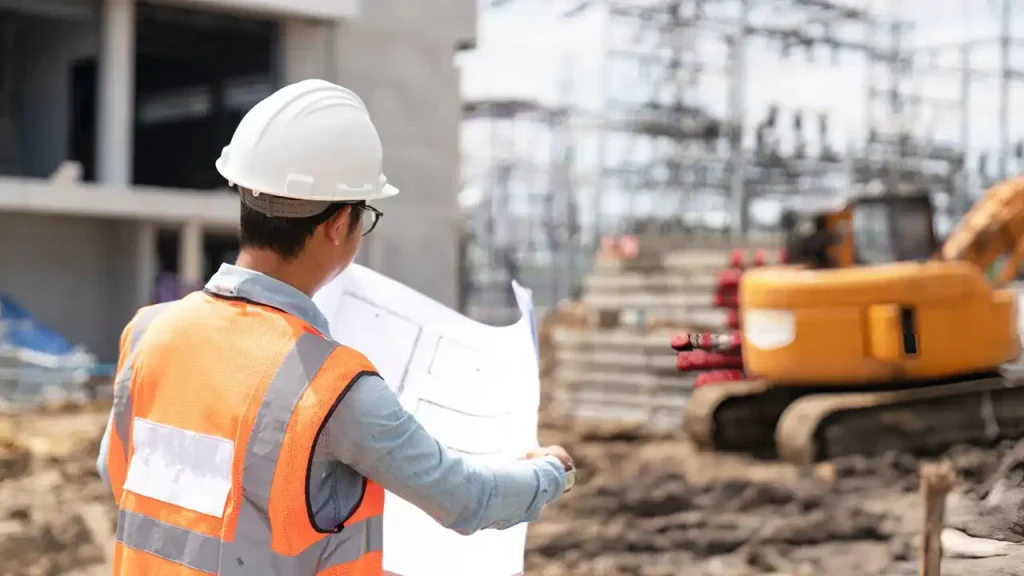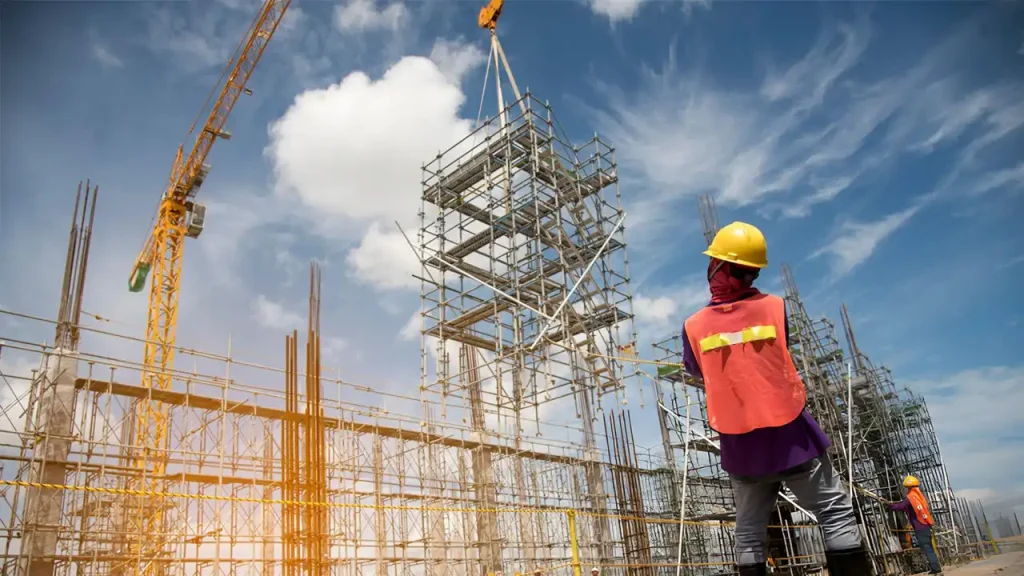The Ingenious World of Stichting Bouwresearch: Pioneering the Future of Building Research

In the heart of the Netherlands, a pioneering spirit thrives in the realm of building and construction. Stichting Bouwresearch (SBR) stands as a beacon of innovation and forward-thinking, dedicated to transforming how buildings are conceived, constructed, and sustained. This tale isn’t just about a research institution; it’s a narrative of collaboration, sustainability, and technological advancement that shapes the future of our living spaces.
Founded with a mission to foster research and disseminate knowledge across the construction sector, SBR has become synonymous with excellence and innovation. Whether you’re a professional in the building industry, a student of architecture, or simply a curious mind eager to understand how the spaces we inhabit are evolving, the journey of Stichting Bouwresearch offers both inspiration and insight.
History and background of Stichting Bouwresearchs
The origins of Stichting Bouwresearch trace back to the mid-20th century, a time marked by rapid advancements in technology and an increasing awareness of the need for sustainable construction practices. Established in the 1960s in the Netherlands, the foundation was born out of a collective aspiration to support the building industry through comprehensive research and innovation.
From its inception, SBR was envisioned as a collaborative platform where architects, engineers, and researchers could unite to address the pressing challenges of the building industry. The primary aim was not just to enhance the quality and efficiency of construction but also to ensure that developments were sustainable and environmentally friendly.

Over the decades, Stichting Bouwresearch has been at the forefront of numerous groundbreaking projects. These projects have not only influenced Dutch architectural standards but have also set benchmarks globally. The foundation’s role in pioneering research on energy-efficient building techniques and its contributions to the development of smart buildings are particularly noteworthy.
As we move further into the 21st century, the legacy of Stichting Bouwresearch continues to evolve. It remains a critical nexus for innovation, adapting to new challenges such as digital construction methods and the integration of renewable energy solutions in building designs.
The role of Stichting Bouwresearchs in the construction industry
Stichting Bouwresearch has carved out a distinct and influential role within the construction industry, acting as both a thought leader and a bridge between theoretical research and practical application. Its contributions have not only shaped academic discourse but have also had a tangible impact on the ground, pushing the boundaries of what’s possible in building technology and management.
Facilitator of Innovation
One of the key roles of SBR is to facilitate innovation. It achieves this by funding research projects that explore new materials, construction methods, and technologies. These projects often lead to breakthroughs that significantly reduce costs, enhance safety, and improve the efficiency of construction processes.
Standard Setter
Through its research findings and publications, SBR plays a crucial role in setting industry standards. By establishing guidelines and best practices, the foundation helps ensure that new building projects meet high standards of quality, sustainability, and resilience. This role is critical in a world where environmental considerations and energy efficiency are becoming increasingly important.
Educator and Collaborator
Stichting Bouwresearch also serves as an educator and collaborator. It organizes workshops, seminars, and conferences that bring together professionals from various sectors of the construction industry. These events are crucial for disseminating new knowledge and fostering an environment of continuous learning and collaboration.
Advocate for Sustainability
In recent years, SBR has intensified its focus on sustainable construction practices. It advocates for green building techniques and the use of renewable resources, pushing the industry towards a more sustainable future. The foundation’s research into the lifecycle impacts of building materials and its promotion of circular economy principles are part of its commitment to environmental stewardship.
Impact of Stichting Bouwresearch on Construction Practices
Stichting Bouwresearch has significantly influenced modern construction practices through its innovative research and proactive advocacy. The impact is evident in several key areas that have transformed the way buildings are designed, constructed, and maintained in the Netherlands and beyond.

Advancing Building Techniques
SBR’s research has led to the development and adoption of advanced building techniques that emphasize durability, efficiency, and minimal environmental impact. These include modular construction methods that speed up construction times and reduce waste, as well as the use of cutting-edge materials that provide better insulation and longer lifespans.
Promoting Energy Efficiency
One of the most notable impacts of SBR is in the promotion of energy-efficient buildings. Through its projects, SBR has helped develop standards and practices that significantly reduce the energy consumption of new and renovated buildings. This not only helps in cutting down operational costs but also aligns with global efforts to combat climate change by reducing carbon footprints.
Enhancing Safety Standards
Safety in construction has also been a major focus of the foundation. SBR’s research has contributed to stricter safety protocols and innovative construction techniques that ensure safer building sites and end-products. This is particularly crucial in an industry often marred by safety risks.
Encouraging Sustainable Urban Development
Stichting Bouwresearch has been instrumental in encouraging sustainable urban development. Its research into sustainable materials and strategies for urban planning has influenced how cities consider long-term ecological and social impacts in their development plans.
Global Influence
While SBR’s focus has been primarily on Dutch construction, its findings and methodologies have had a global reach. Through partnerships, publications, and participation in international conferences, SBR has shared its insights worldwide, influencing construction practices in various countries and climates.
Research and studies conducted by Stichting Bouwresearch
Stichting Bouwresearch (SBR) is renowned for its rigorous and impactful research, which has significantly contributed to advancing the building and construction industry. The foundation’s diverse portfolio of studies covers a wide range of topics, each aimed at enhancing various aspects of construction practices. Below are some key areas of SBR’s research focus.
Building Materials and Technologies
A significant portion of SBR’s research revolves around the evaluation and development of new building materials and technologies. This includes studies on the longevity and sustainability of new composites, as well as the efficiency of innovative construction technologies that could potentially revolutionize building processes.
Energy Efficiency and Sustainability
SBR has undertaken extensive research into energy efficiency, particularly in the development of high-performance insulation materials and energy-saving building systems. These studies not only help reduce energy consumption but also aim to promote the widespread adoption of renewable energy sources within the industry.
Structural Integrity and Safety
Research on structural integrity and safety forms a crucial part of SBR’s agenda. This involves testing and improving construction techniques to enhance the safety and durability of buildings, especially in response to environmental stresses like earthquakes and floods.
Urban Planning and Development
SBR also focuses on urban planning and development, with studies designed to integrate sustainable practices into urban and suburban areas. This research includes the optimization of space usage, green infrastructure planning, and the development of guidelines for sustainable community development.
Environmental Impact Assessments
Understanding the environmental impact of construction activities is another vital area of SBR’s research. These studies assess the life cycle impacts of building materials and construction practices, helping to shape policies that aim to minimize the ecological footprint of the building sector.
Collaborations and partnerships of Stichting Bouwresearch
Stichting Bouwresearch (SBR) thrives on collaboration and partnerships, recognizing that the challenges facing today’s construction industry are complex and multifaceted. These collaborative efforts are pivotal in amplifying the reach and impact of their research. Here are some key aspects of SBR’s collaborative initiatives.

Academic and Educational Institutions
SBR has forged strong ties with universities and research institutes across the globe. These partnerships facilitate a two-way transfer of knowledge, enabling SBR to incorporate the latest academic research into its projects while offering real-world data and case studies for academic scrutiny. Such collaborations often result in co-authored papers, joint research grants, and shared expertise that benefit the wider academic and professional communities.
Industry Associations
Collaborating with industry associations helps SBR stay connected with the needs and trends of the construction market. These associations provide a platform for SBR to disseminate its research findings directly to practitioners and firms who can implement them in their projects. Furthermore, these partnerships often influence policy changes and standard-setting within the industry.
Government Bodies
SBR works closely with various government agencies to ensure that its research aligns with national priorities and regulatory frameworks. This collaboration is crucial for the development of construction policies that promote sustainability and safety. Government partnerships also help in the implementation of SBR’s research outcomes at a scale that can have a significant societal impact.
International Networks
By participating in international networks, SBR extends its influence beyond national borders. These networks allow SBR to share knowledge, compare methodologies, and adopt best practices from around the world. Such international collaborations enhance the global relevance of their research and foster global standards in building practices.
Private Sector
Engagement with the private sector is essential for testing and validating new concepts and technologies developed through SBR’s research. These partnerships often lead to pilot projects and prototypes that can be scaled up for commercial use, driving innovation throughout the construction industry.
Case Studies Highlighting the Transformation Brought by Stichting Bouwresearch
1. The Sustainable Office Building Project
One of the landmark projects led by Stichting Bouwresearch is the Sustainable Office Building Project. Located in the heart of Rotterdam, this project serves as a model for sustainable design and has set a new standard for eco-friendly office spaces in Europe.
Project Overview: The Sustainable Office Building is a testament to innovative architectural design, incorporating advanced energy-efficient technologies and sustainable materials. The building features solar panels, green roofs, and a state-of-the-art water recycling system, all of which contribute to its near-zero carbon footprint.
Impact: This project not only reduced energy consumption by 40% compared to conventional office buildings but also enhanced the well-being of its occupants. The use of natural light, improved air quality, and green spaces has been shown to increase productivity and reduce sick days. The success of this project has inspired similar initiatives across the continent, demonstrating the practicality and profitability of sustainable building practices.
2. The Smart City Initiative
The Smart City Initiative, spearheaded by Stichting Bouwresearch, aimed at transforming a mid-sized Dutch city into a fully integrated smart city. This project involved collaboration with technology firms, local governments, and the community to embed intelligence into the city’s infrastructure.
Project Overview: The initiative focused on enhancing urban life through technology, including the implementation of smart grids, IoT-connected public services, and intelligent transport systems. The project’s core was its data-driven approach to urban management, which allowed for real-time decision-making and resource optimization.
Impact: The Smart City Initiative has significantly improved urban efficiency and sustainability. Energy use has been optimized, traffic flow has been improved, and public safety has been enhanced through smart surveillance systems. The project has served as a blueprint for other cities worldwide, showcasing how technology can profoundly transform urban environments.
Future prospects and developments of Stichting Bouwresearch
As we look towards the future, Stichting Bouwresearch (SBR) is poised to continue its role as a trailblazer in the construction and building research industry. With several exciting prospects on the horizon, SBR is set to further enhance its impact on sustainable construction practices, smart building technologies, and innovative urban planning. Here are some key developments expected in the near future:
Advancements in Sustainable Construction
SBR is intensifying its research into even more sustainable and environmentally friendly building materials and methods. This includes the development of bio-based building materials and the integration of living green walls and roofs into new building designs. These advancements aim to reduce the environmental impact of construction projects and promote biodiversity in urban settings.
Expansion of Smart Building Research
The foundation is expanding its research into smart building technologies, focusing on enhancing energy efficiency and occupant comfort simultaneously. Future projects will likely involve more advanced IoT solutions, AI-driven building management systems, and autonomous maintenance drones that ensure buildings are both sustainable and intelligently managed.
Focus on Climate Adaptation
Given the increasing importance of climate resilience, SBR is set to focus more on how buildings can be designed to withstand climate change effects. This includes research on flood-resistant construction techniques, heat-resistant materials, and designs that can accommodate extreme weather conditions.
Collaborative International Projects
SBR plans to extend its collaborative efforts by partnering with international research institutes and construction firms. These global projects will not only broaden the scope of SBR’s research but also facilitate the exchange of ideas and solutions that can benefit communities worldwide.
Educational Initiatives
Recognizing the need for continuous education in the construction industry, SBR is developing more extensive training programs and workshops. These initiatives aim to keep professionals updated on the latest research findings and technologies, ensuring that the industry evolves with the advancements in building science.
Conclusion
Stichting Bouwresearch stands as a paragon of innovation and excellence within the construction research community. Through its extensive history, strategic collaborations, and groundbreaking projects, SBR has not only shaped contemporary building practices but also pointed the way toward a future where construction is sustainable, intelligent, and fully integrated with environmental stewardship.
The case studies of the Sustainable Office Building Project and the Smart City Initiative are just a few examples of how SBR’s research can transform everyday living environments into models of efficiency and sustainability. As we look forward, the foundation’s commitment to advancing building technologies and sustainable practices is more crucial than ever, especially in the face of global challenges like climate change and urbanization.
